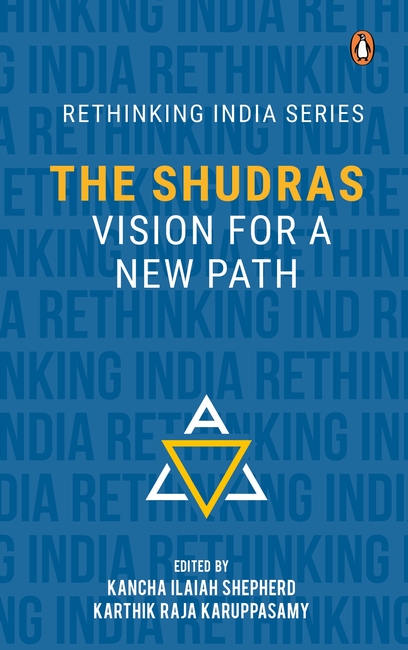
‘The Shudras echoes Dr Ambedkar’s question in Who Were the Shudras? that he asked in 1946. More than 70 years later, Kancha Ilaiah and his team of authors revisit this issue to give Shudras a voice again’ -CHRISTOPHE JAFFRELOT
The Shudras: Vision for a New Path weaves together multiple dimensions of the predicament of India’s productive castes–in the spiritual, social, political, economic, philosophical and historical spheres. It reformulates their current position as well as future pathways. It strives to provoke Shudras-including regional political party leaders-all over India to realize their unique historical role in fighting unequal caste structures. And it gives a call to resist Hindutva, in which they have no liberated, equal space with the Dwija castes. At a juncture when the Shudra castes are regionalized and the Dwijas have become ‘national’, the fifth volume of the Rethinking India series, in collaboration with the Samruddha Bharat Foundation, seeks to bring home the real picture of their marginalized status in all key structures of the nation. It posits that the emancipation and progress of the Shudras are vital to sustain Ambedkar’s constitutional democracy and move towards socio-spiritual equality.
Imprint: Vintage Books
Published: Feb/2021
ISBN: 9780670092987
Length : 272 Pages
MRP : ₹699.00